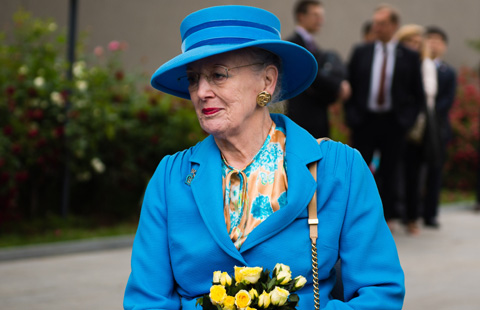Supervisers supervised
Updated: 2014-05-13 07:30
(China Daily)
|
|||||||||||
News came last Friday that an official of the Central Commission for Discipline Inspection of the Communist Party of China, Wei Jian, was under investigation for disciplinary violations and illegal activities.
The case best answers the question who should supervise the disciplinary supervisors, says China Youth Daily.
Compared with the "tigers", those corrupt officials at the provincial or ministerial level, Wei is only a "fly" and his illegal activities, if they are confirmed, couldn't possibly be among the most serious due to his middle rank.
However, his case has attracted more attention from the public than most of its kind, because he works for the CCDI and he is the first CCDI official to be investigated since the watchdog set up an internal affairs branch in March.
His being investigated sends a clear signal that no one owns privilege in the ongoing anti-corruption drive. That any official who violates Party discipline or the nation's laws will be subject to punishment.
Further, Wei's case offers the answer to the question: who will supervise the supervisors? Disciplinary committees at various levels of the Party commissions are supposed to supervise power, but such supervision constitutes yet another branch of power. How can that power be effectively supervised?
There is no need to establish another body to supervise the disciplinary commission at all levels because, according to the anti-corruption design, the disciplinary bodies are being supervised by the disciplinary bodies and the public too. So the question should actually be: is this supervision truly effective?
Wei's investigation suggests it is, and that is why the move is expected to win greater public trust for the CCDI.
Some media outlets have made the mistake of saying the commission is "self-supervising". Actually, so-called self-supervision relies on the morality of the organization and its staff. Instead the investigation of Wei and other disciplinary officials' cases are just the normal functioning of the mechanism to prevent and root out corruption.
There is a traditional Chinese saying: "Only a strong person can assume the role of a smith". By being as strict with their own staff as with any other officials, disciplinary committees are proving that they are qualified and able to play the role of corruption fighters.
Related Stories
143 corruption cases exposed by anti-graft watchdog 2014-04-21 14:18
Protect informants in fight against corruption 2014-04-18 17:48
Strike at the root of corruption 2014-04-18 07:13
Corrupt officials under heavy pressure, commission says 2014-04-17 14:55
Today's Top News
Trip reflects militaries' will to seek closer ties
Death row inmate's sentence questioned
Premier's convenience store buy sparks shopping craze
150 armed patrol vehicles put on Beijing streets to combat terrorism
Armored team patrols Beijing's streets
Ukraine regions hold sovereignty vote
India, Pakistan troops exchange fires on Kashmir LoC
Panda base looks for caretakers
Hot Topics
Lunar probe , China growth forecasts, Emission rules get tougher, China seen through 'colored lens', International board,
Editor's Picks

|

|

|

|

|

|





